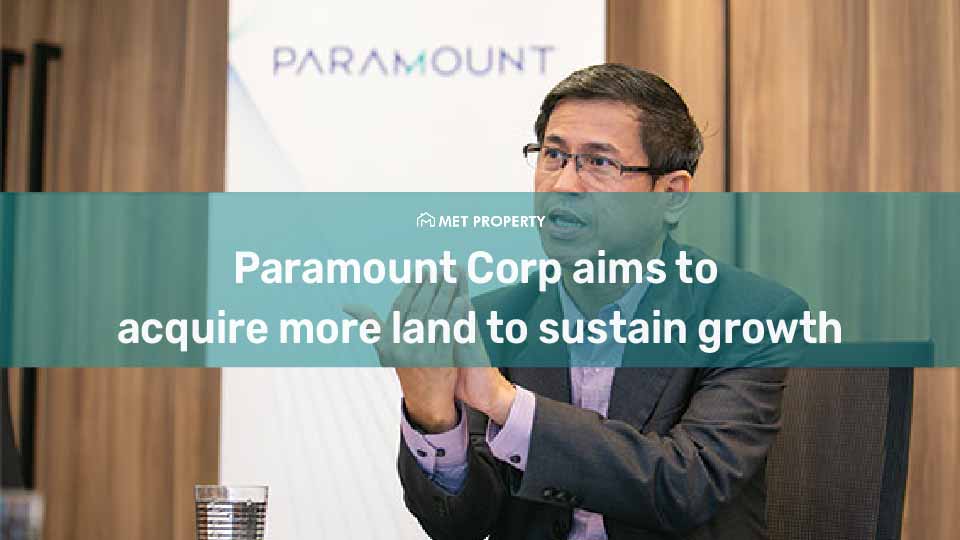“Group CEO and executive director Jeffrey Chew Sun Teong mentioned that to achieve a 7% profit margin in the Malaysian market this year, the company needs to acquire more land for new projects.“
PETALING JAYA, 14th May 2024 – Paramount Corporation Bhd (PCB) plans to keep investing in and expanding its land holdings in Malaysia to support its growth, while also exploring international opportunities.
Group CEO and director Jeffrey Chew Sun Teong stated that achieving a high single-digit growth target in the Malaysian market requires acquiring more land to initiate new projects.
Regarding its overseas investments, Chew noted that even though these are joint ventures, the group will account for the profit and loss, contributing to its property development income.
“We aim for high single-digit revenue growth in the Malaysian market and hope that the overseas market will boost our overall revenue growth to double digits,” Chew stated to Bernama following an investor relations and media presentation on the group’s acquisition of a 21.54 percent equity stake in Eco World International Bhd (EWI) today.
The EWI group primarily focuses on real estate development in the United Kingdom and Australia.
In the presentation, Chew mentioned that of the RM170.61 million paid for the stake acquisition, up to RM108 million is expected to return to PCB as dividends in 2024 and 2025.
In its announcement last Friday regarding the acquisition, PCB highlighted that EWI, in a circular dated February 23, 2024, aimed to distribute dividends totaling up to RM504 million, or 21 sen per share, in 2024 and 2025, pending certain conditions.
“So, our net investment for this amounts to RM62 million, with RHB Bank financing 80 percent of the acquisition.
“Essentially, we’re investing just RM12 million in equity for this deal. Therefore, we anticipate a high internal rate of return (IRR) in the coming years due to the minimal equity placement,” said Chew.
He added that although the acquisition was a good-value and relatively conservative purchase, one risk is that PCB would not hold a controlling stake or have direct involvement in EWI’s operations.
However, he noted reassurance in the governance structure, as EWI adheres to the regulations for Malaysian listed companies.
“But as a substantial shareholder in EWI, we will still have voting rights,” he added.
Looking ahead, Chew stated that acquiring the EWI stake would expedite PCB’s diversification strategy, aiming for 30 percent of its property income to originate from overseas within the next five years.
“In five years, we plan to slow down our operations in Malaysia as the market is relatively small and we have been expanding rapidly.
“We aim to achieve a significant size and enhance our standing as a Malaysian developer with international projects as well,” said Chew.
Currently, PCB’s international business accounts for less than 10 percent of its income. In Bangkok, Thailand, the company invested RM24.6 million in debt and equity for the development of Na Reva Charoennakhon, a 29-story condominium project, in 2020.
Chew mentioned that while PCB is actively seeking opportunities in other countries, it is also exploring ventures in the digital sector, recognizing technology as a key to future growth.
The company has earmarked around RM100 million for this initiative and has invested approximately RM40 million to RM50 million in startups since 2020.
“We have invested in three startups so far and are continually searching for a promising startup with the potential to become the next unicorn, whether in fintech, e-commerce, or new technological businesses,” Chew added.



